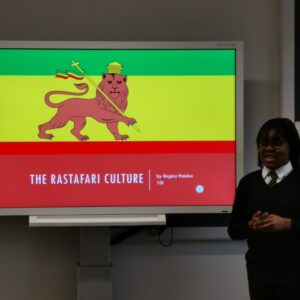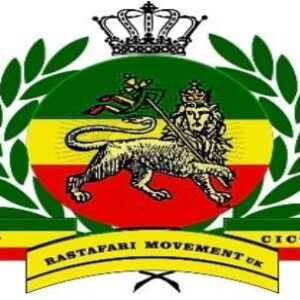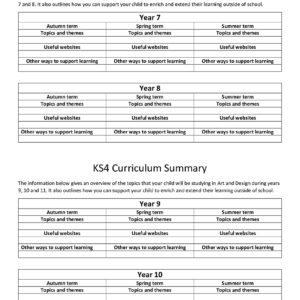Welcome to Sociology at Eastbrook. The Sociology department aims to develop the students’ knowledge and skills within the wider school ‘Character and Academics’ approach to curriculum. We use the study of society to support our pupils deeper understanding and critical awareness of the social world around them. The specifications, at GCSE & A Level, focus on the importance of social structures in explaining social issues. Learners will be encouraged to explore and debate contemporary social issues to enable them to challenge taken-for-granted assumptions and to question their everyday understanding of social phenomena.
Studying sociology at Eastbrook, learners will develop their own sociological awareness through active engagement with the contemporary social world. Engaging with each specification, learners are encouraged to apply sociological knowledge to their experiences of their social world so that they are able to understand issues, demonstrate empathy and play, positive, active and informed role in society.
Given our diverse school and communities, sociology at Eastbrook helps students to develop PROUD qualities, support their understanding of the complexity of people’s lives, the processes of change, the diversity of societies and relationships between different groups, as well as their own identity in order to navigate the challenges of their (our) time.
What makes a good Sociologist?
A good sociologist needs an outward-looking perspective on the world, and should be prepared to show empathy. They should be interested in reading widely, including newspapers, books and news channels websites, to be able to relate the topics learnt in class to the outside world. Above all they should be able to think critically and independently, challenge assumption, apply sociological knowledge to issues in order to improve the lives of their fellow human beings.
GCSE Sociology
Year 10
The first unit, processes of socialisation, examines how individuals are nurtured into their identities and gender roles. Simultaneously, students will make presentations on their research and comparison between Rastafarianism and their cultural experience. These key skills are concurrently taught alongside knowledge in Research Methods, examining and application of advantages and disadvantages of various ways of sourcing data to researching issues in education e.g labelling.
Education
During the autumn term, students undertake the study of the education system and issues that affect students’ achievement. Examining types of schools and the impact some schools have on the life chances of their students are is a good starting point, as students access the world of elite and comprehensive schools and the possible advantages that each offer in shaping the lives of their students. Issues affecting student’s achievement, external and internal, are assessed according to social factors including gender, class and ethnicity. A Controversial issue, as in whose interest does the education system support, is assessed from different theoretical perspectives including functionalists, marxists and feminists.
Families
The function of the institution is examined, encouraging students to critically assess its positives, abuses members encounter, and the extent to which it supports capitalism. Unpacking issues affecting families including divorce, decline in marriage and roles within the family amongst others are discussed in details.
Year 11
Crime and Deviance
Unpacking elements of different types of crimes. Theoretical views, including functionalists; marxists; interactionalists; and feminists are applied to the functions of crime and deviance in society, how social factors affect levels of criminality and does the criminal statistics be trusted.
At the end of KS4, students look at the social factors that stratify people in society and the impact they have on people’s life chances. The focus in this component is on social differentiation, power and stratification. This includes the theme of power, issues of social order and social control, studied through crime and deviance. Learners also study applied methods of sociological enquiry. Learners’ knowledge and understanding of sociological research methods studied in Component 1 will be reinforced by considering the research methods used to gather evidence for the theories studied in Component 2. In applied methods of social enquiry, learners are encouraged to further develop their understanding of the research process by considering the stages in carrying out research and in interpreting data. This will assist them in their assessment of the evidence used to support or challenge theories in both components.
Curriculum Enrichment
- Trip to Central Criminal Court (Old Bailey) and a local police station
- Participation in Eastbrook’s Cultural Awareness Week planning
- Human Rights Project
Homework
Homework is regularly set to supplement and extend the learning of the classroom
Career Opportunities
GCSE Sociology provides the knowledge and skills to progress towards A Level Sociology. It complements the study of other disciplines, especially a full range of humanities subjects.
Exam Board
Awarding body: EDUQAS
Course title: GCSE Sociology
Specification code: C200QS
GCSE assessments
Paper 1 –Processes of socialisation; Education; Families & Methods in Context
Paper 2 – Crime & Deviance; Social Differentiation and stratification and Research Methods
Support for exams
Links to useful websites:
- http://www.discoversociology.co.uk
- https://getrevising.co.uk/resources/level/gcse/subjects/sociology
- https://www.tutor2u.net/sociology
- https://www.theguardian.com/uk
- https://www.thetimes.co.uk/
- https://www.aljazeera.com/
- https://www.bbc.co.uk/
Past Papers and specification: https://www.eduqas.co.uk/qualifications/sociology-gcse/#tab_pastpapers
A Level Sociology – Two years programme of study
This qualification offers an engaging and effective introduction to Sociology, for those who have never studied the subject at GCSE, and deeper understanding and appreciation for the subject for those who read it at GCSE. The knowledge and skills garnered are valued by higher education (HE) and employers, including critical analysis, independent thinking and research.
The course is has relevance for our students who experience a wide range of social issues whilst living and (or) attending school in Dagenham. The specification leads to a market-leading qualification to produce clear, up-to-date, stimulating discussions and provide a coherent and holistic programme of study that challenge and motivate them to make informed decisions and changes to improve lives.
Some questions A-Level Sociology covers include:
- Why do boys underachieve in the education system?
- Why are black people five time more likely to be stopped and searched?
- Why are women more religious when religion oppresses them?
A-Level Sociology helps you to develop knowledge and understanding of the essential sociological theories and methods (such as Functionalism, Marxism and Feminism) with which sociologists make sense of the diversity of societies, and of the forces which have and will continue to shape social change.
What Can I Expect To Learn In Sociology?
The A-Level will be examined through 3 examinable components
- Education with Theory and Methods (33%)
- Topics in Sociology (33%)
- Crime and Deviance with Theory and Methods (33%)
Year 12
Education with Theory and Methods
Candidates examine: the role and purpose of education; educational achievement in relation to class, gender and ethnicity; relationships and processes within schools; educational policies, equality of opportunity, the impact of globalisation; and the application of sociological research methods to the study of education; theory and methods – research data, positivism, interpretivism, considerations, theories, science, value freedom, impact of sociology on social policy.
Family and Households
Candidates examine: the relationship of the family to social structure, social change and state policies; changing patterns of marriage and divorce; diversity of family structures; changes within the family – gender roles and power relationships; the concept of childhood and the status of children; and demographic trends.
Year 13
Beliefs System
Candidates examine: theories of ideology, science and religion; the relationship between religious beliefs, social change and stability; religious organisations; social groups and religious movements; secularisation and religiosity in the contemporary global context.
Crime and Deviance with Theory and Methods
Candidates examine: theories of crime, deviance, order and control; the social distribution, patterns and trends of crime and deviance; globalisation and crime, green crime, human rights and state crimes; crime control and prevention; theory, methods and the study of crime and deviance.
Curriculum Enrichment
Trip to Central Criminal Court (Old Bailey) and a local police station
Career opportunities
Sociology provides an excellent starting point for any social science degree from Economics, Psychology, Law and Politics. You do not need to have an A-Level in Sociology to take Sociology at university, though it helps.
A degree in Sociology can lead to many career options including teaching, advertising, research, marketing and business and politics. Sociology is an academic subject teaching you transferable skills so really it is up to you which area of work you choose to go into afterwards.
Homework
Homework is regularly set to supplement and extend the learning of the classroom
Exam Boards
Awarding body: AQA
Course title: A Level Sociology
Specification code: 7191 7192
Support for exams
Links to useful websites:
- http://www.discoversociology.co.uk
- https://getrevising.co.uk/resources/level/gcse/subjects/sociology
- https://www.tutor2u.net/sociology
- https://www.theguardian.com/uk
- https://www.thetimes.co.uk/
- https://www.aljazeera.com/
- https://www.bbc.co.uk/
Past Papers: https://www.aqa.org.uk/subjects/sociology/as-and-a-level/sociology-7191-7192/assessment-resources?f.Sub-category%7CF=Sample+papers+and+mark+schemes





